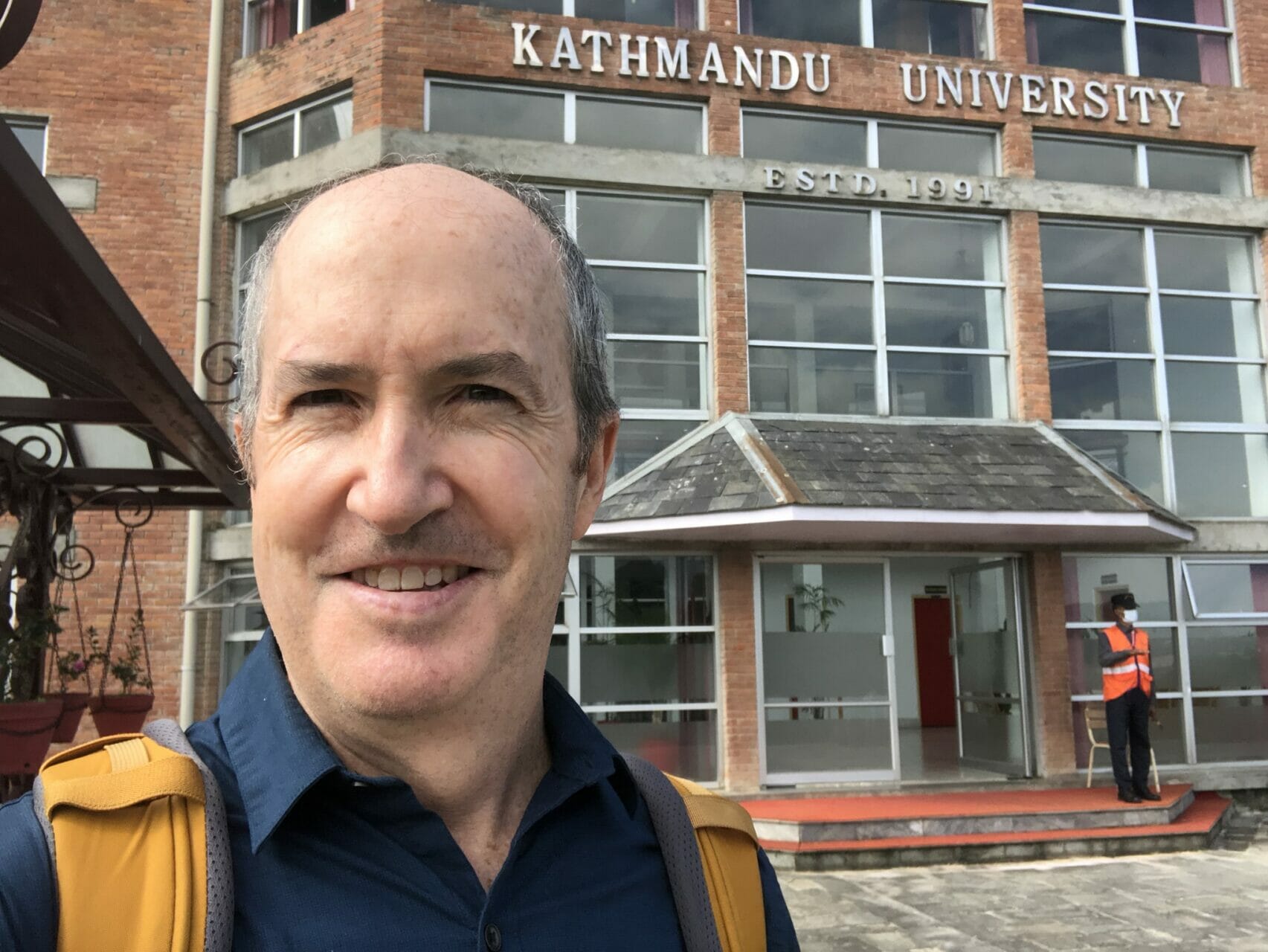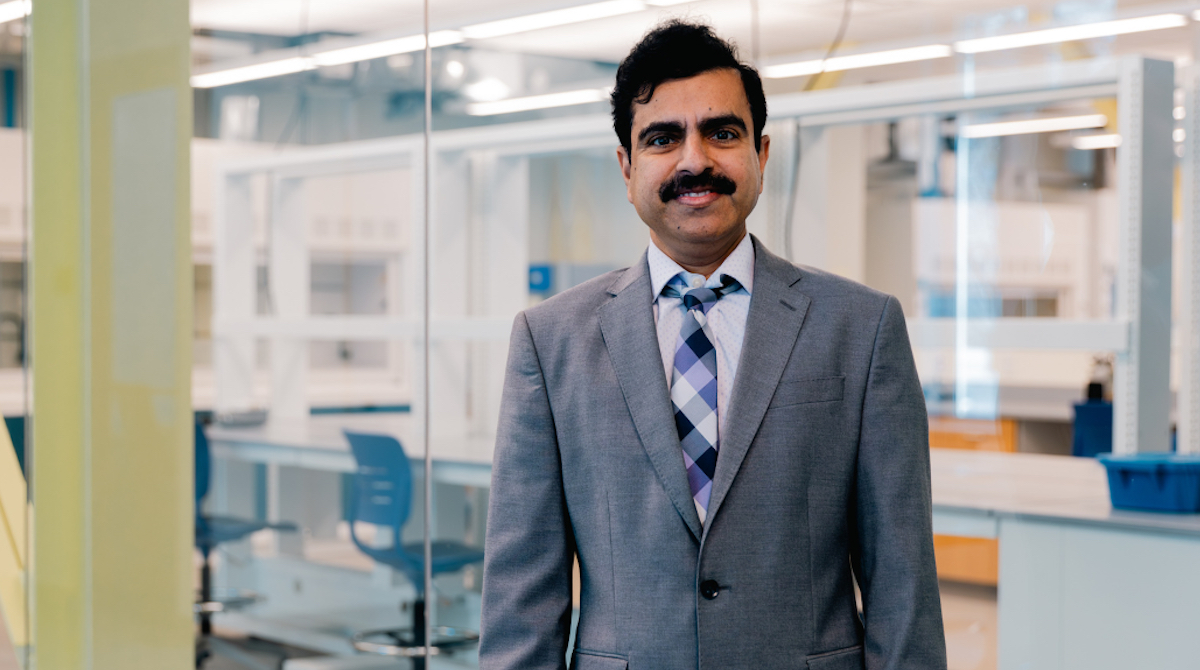Tragedy is what first brought Merrimack College Associate Professor Marc Veletzos to Nepal back in 2015, following the devastating earthquakes that killed more than 8,500 people, caused widespread damage and affected nearly 30% of the country’s population.
A structural engineer, Veletzos volunteered his services through a nonprofit, the Thame Sherpa Heritage Fund, and traveled to the South Asia country just months after the earthquake to help people in the remote Himalayan communities of the Thame valley rebuild their homes in a way that would limit damage in the event of future earthquakes.
“My role was to provide technical advice,” explained Veletzos, chair of Merrimack’s civil engineering department. “By the time I got there it was July and they had already started rebuilding in preparation for the winter. So I offered some affordable techniques that would help with earthquake performance.”
But Veletzos’ connection with Nepal did not stop there. In addition to a visit in 2016, he has spent this summer at Kathmandu University on a Fulbright scholarship, working with engineering graduate students and faculty.
“The main objective is to help Nepal and Kathmandu University improve their earthquake engineering research capabilities,” he said. “What I am trying to do is capacity building in a variety of ways, from research culture to human infrastructure.”
Veletzos explained that much of the earthquake engineering research in Nepal is being done through computer models and simulations, which is challenging and detailed work but the practical applications are uncertain. As he has worked this summer to urge more physical experiments, he learned funding for graduate students is a significant hurdle.
“They have the people, the tools and the knowledge, but what I have come to learn is unlike in the U.S., graduate students here don’t receive any funding,” Veletzos explained. “These types of physical research projects are sorely needed and have the potential to save many lives in future earthquakes. So these students are full time, but in order to pay for their education they also have to work and therefore don’t have the time to devote to physical experiments.
He is noticing a change in the research culture, with some students planning to conduct physical experiments on improved seismic details for economically and environmentally sustainable stone masonry walls in the coming months. This type of construction is common in the remote regions where most of the population of the country resides. He is also connecting universities across the country to work together to encourage physical experiments and sharing information about the role of civil engineers on FEMA Urban Search and Rescue teams. Additionally, Veletzos is traveling to the remote Himalayan communities he helped to rebuild back in 2015 to see how they have recovered from the earthquake. He said they plan to publish their findings about the community’s progress in the near future.





